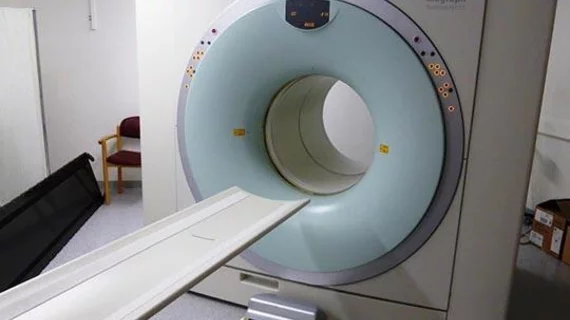Meditation increases blood flow in the heart, PET scans show
Not only can transcendental meditation encourage mindfulness, but new PET research suggests it can also improve heart health.
That’s what research published in the Journal of Nuclear Cardiology suggests. Scientists from Columbia University Irving Medical Center in New York found patients with coronary heart disease who incorporated meditation into their heart rehab regimen increased their cardiac blood flow by more than 20%. The “groundbreaking” proof-of-concept study may have more cardiologists suggesting meditation to their patients.
"This was the first study to show that the cardiovascular benefits of lifestyle modification such as structured exercise and dietary counseling may be enhanced by adding transcendental meditation in patients with heart disease," co-author Robert Schneider, MD, with Maharishi University of Management Research Institute in Maharishi Vedic City, Iowa, said in a statement. "It also found that the transcendental meditation technique alone was able to reverse the effects of coronary heart disease assessed by PET imaging."
Schneider noted that prior research has established psychosocial stress as a risk factor for coronary heart disease. However, stress reduction techniques aren’t typically included in cardiac rehabilitation.
In their study, the researchers randomly divided 56 patients into four groups: cardiac rehab, transcendental meditation, transcendental meditation plus cardiac rehabilitation or normal care.
According to the research, 37 patients completed the study. Of that group, patients who practiced transcendental meditation and cardiac rehabilitation increased their myocardial blood flow by 20.7%. PET scans also revealed a 12.8% increase in those who completed mediation alone. Cardiac rehab improved flow by 5.8%, while usual treatment decreased that metric by 10.3%.
“Although this is a preliminary study, it suggests that managing one's mind-body connection with transcendental meditation can improve the function of the heart in cardiovascular patients," Schneider added.
The direct cause of such increases are unknown, but the team hypothesized it could stem from reduced stress hormone levels and inflammation, which may improve the function of cells lining the coronary arteries that are crucial to blood flow.
“More research needs to be done, but this study and previous research strongly suggest that medical professionals should consider utilizing this simple yet effective mind-body intervention in their heart health treatment and prevention programs," Schneider concluded.

